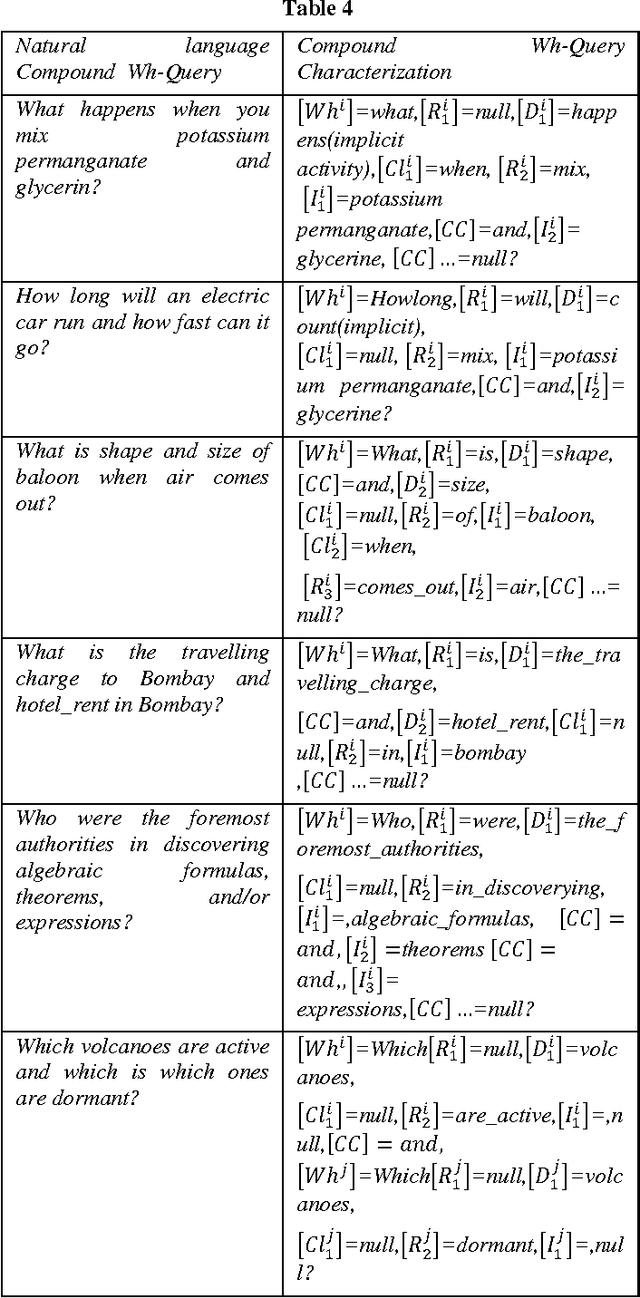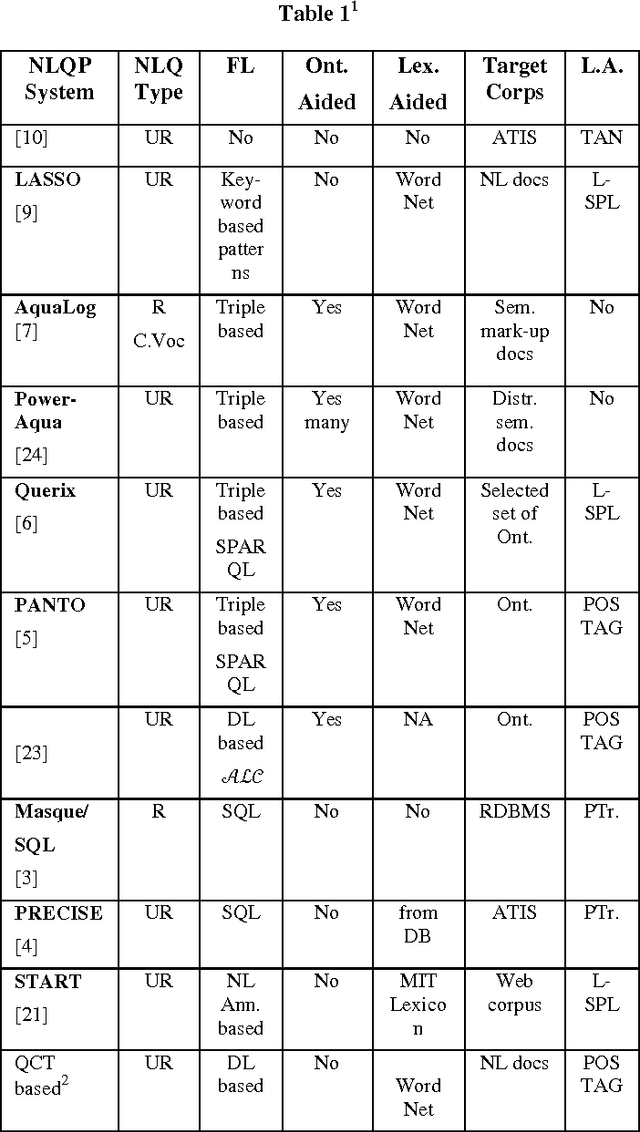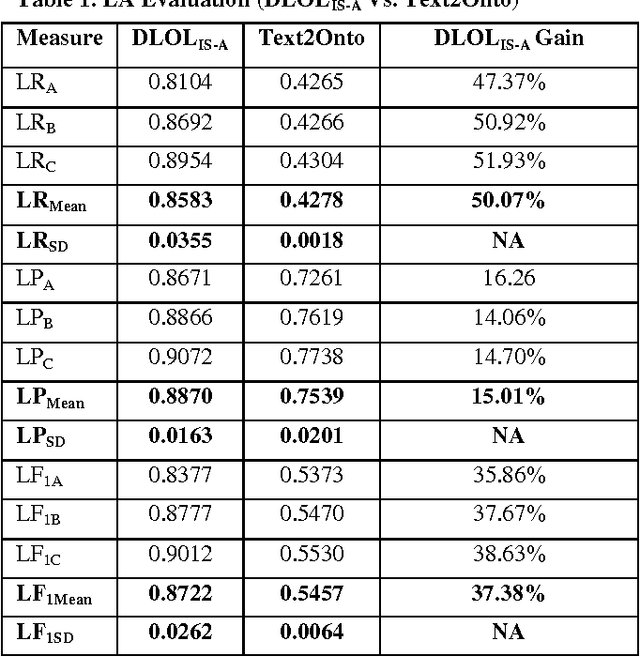Rupali KaPatel
Description Logics based Formalization of Wh-Queries
Dec 25, 2013



Abstract:The problem of Natural Language Query Formalization (NLQF) is to translate a given user query in natural language (NL) into a formal language so that the semantic interpretation has equivalence with the NL interpretation. Formalization of NL queries enables logic based reasoning during information retrieval, database query, question-answering, etc. Formalization also helps in Web query normalization and indexing, query intent analysis, etc. In this paper we are proposing a Description Logics based formal methodology for wh-query intent (also called desire) identification and corresponding formal translation. We evaluated the scalability of our proposed formalism using Microsoft Encarta 98 query dataset and OWL-S TC v.4.0 dataset.
DLOLIS-A: Description Logic based Text Ontology Learning
Mar 24, 2013



Abstract:Ontology Learning has been the subject of intensive study for the past decade. Researchers in this field have been motivated by the possibility of automatically building a knowledge base on top of text documents so as to support reasoning based knowledge extraction. While most works in this field have been primarily statistical (known as light-weight Ontology Learning) not much attempt has been made in axiomatic Ontology Learning (called heavy-weight Ontology Learning) from Natural Language text documents. Heavy-weight Ontology Learning supports more precise formal logic-based reasoning when compared to statistical ontology learning. In this paper we have proposed a sound Ontology Learning tool DLOL_(IS-A) that maps English language IS-A sentences into their equivalent Description Logic (DL) expressions in order to automatically generate a consistent pair of T-box and A-box thereby forming both regular (definitional form) and generalized (axiomatic form) DL ontology. The current scope of the paper is strictly limited to IS-A sentences that exclude the possible structures of: (i) implicative IS-A sentences, and (ii) "Wh" IS-A questions. Other linguistic nuances that arise out of pragmatics and epistemic of IS-A sentences are beyond the scope of this present work. We have adopted Gold Standard based Ontology Learning evaluation on chosen IS-A rich Wikipedia documents.
 Add to Chrome
Add to Chrome Add to Firefox
Add to Firefox Add to Edge
Add to Edge